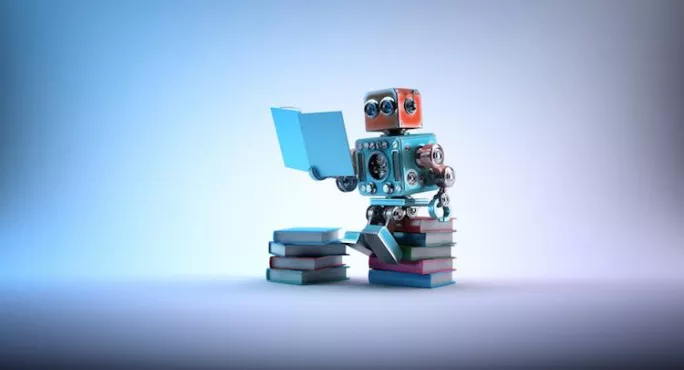Robot teaching assistants and virtual reality learning are part of the future of education worldwide, headteachers have been told.
Technology is set to play a vital role in helping the 263 million children globally who are not in school, delegates at the annual Headmasters’ and Headmistresses’ Conference (HMC) heard.
Mark Steed, the director of Dubai independent school JESS, predicted that robots could be used to teach maths and reading to primary school pupils.
He said there was already an example in Dubai where a robot accompanied sick children from the classroom to the school’s health centre.
“I think we will see more robots in the classroom and I think they will become routine, particularly in primary classrooms, as teaching assistants,” he said.
VR teaching assistants
Mr Steed, who outlined his vision at the HMC conference in Belfast, also said virtual-reality (VR) headsets could enable a child in the developing world to sit in on a lesson delivered in a top independent school. He said footage captured by a 360-degree camera placed in the second row of one of the classrooms at JESS provided a totally immersive experience when watched through a VR headset.
“When you put a headset on you feel as if you are in a classroom and it’s a very different experience from the passive idea of watching a screen,” he said. “I can turn to the left and right and see the people who are in the class there.
“There’s no reason with time, with increasing bandwidth and processor speed and everything, that you could have the experience of a pupil sitting anywhere in the world feeling as if they were in the classroom of one of the top schools in the world.”
He suggested the for-profit school sector had the resources to invest in the technology required to deliver the concept and predicted that the advent of virtual reality learning would result in celebrity teachers who could make millions, pointing to a Korean teacher who offers online lessons on “cramming” learning and made eight million US dollars in one year.
Mr Steed also expressed confidence that cost implications associated with supplying headsets would not be overly prohibitive in the developing world. He said the spread of mobile phones in developing countries was an example of how technology was not a barrier.
Meeting resistance
Mr Steed said he did not think the developments would catch on in UK schools in the short-term, claiming the nation was too wedded to the traditional concept of a teacher standing in front of a class.
But Mr Steed predicted such technology would increasingly be used to address education deficits elsewhere in the world.
“I think technology is going to become part of the solution,” he said.
“I don’t think we’ll see much of this necessarily in the UK in the short-term but on a global scale there will be opportunities for top teachers and the top institutions to share their lessons with people around the world.”
The HMC is a body that represents the heads of independent schools around the world.

